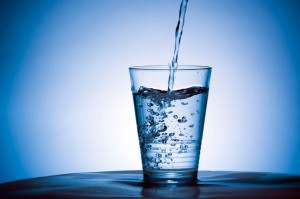 There has been much debate among the medical and scientific communities about diet soda versus water, and how they impact weight loss. During a session at Obesity 2011 on Wednesday, the findings of a 6-month randomized controlled trial comparing the two beverages as replacements were presented.
There has been much debate among the medical and scientific communities about diet soda versus water, and how they impact weight loss. During a session at Obesity 2011 on Wednesday, the findings of a 6-month randomized controlled trial comparing the two beverages as replacements were presented.
Researchers wanted to know if replacing a sugary beverage with diet soda produces the same results as replacing it with water. On one hand, drinking water has been linked with weight loss in some studies, but on the other hand, diet soda provides variety and accommodates differences in taste – although there are health concerns about drinking diet soda.
To qualify for the trial, individuals needed to be drinking at least 280 calories of sweetened beverages per day (not including unsweetened milk). The participants had a Body Mass Index (BMI) ranging from 25 to 50, with an average BMI of 36. There were 3 arms to the study: One subset of people went to a monthly group meeting and had access to website resources (the control group); another subset went to the monthly meeting, had access to the website resources, and were asked to replace 2 sugary beverages a day with diet soda (the diet soda group); and the final subset went to the meetings, had the same website access, and were asked to replace those 2 sugary beverages with water (the water group). The meetings provided general weight loss advice but no talk of beverages.
The researchers then measured the results. The first thing they found was that food intake was equal among the 3 groups, meaning there likely was not ‘overcompensating’ happening for replacing the sugary beverages with water or diet soda. There was no significant difference in weight loss between the water and diet soda groups, but they hypothesized that at 6 months out, the diet soda group would have the best weight loss because the group showed better adherence to beverage replacement than the water group. They found that replacement of sugary beverages with either water or diet beverages lead to twice the odds of achieving a 5% weight loss, as compared to the control group.
Dr. Patrick Chiasson, expert weight loss surgeon at the Southern Arizona Center for Minimally Invasive Surgery, commented on the differences between diet soda and water: “Water intake is one of the hallmarks of achieving successful weight loss following surgery. Every patient should aspire to take in at least 64 ounces of water per day. This decreases the potential for developing kidney stones. It also is helpful for maintaining a healthy metabolism. Every patient needs to understand that 90% of the time symptoms of thirst are misinterpreted as hunger.”
Dr. Chiasson explained that diet beverages are controversial. “It has been argued that artificial sweeteners actually stimulate appetite by tricking the body into increasing insulin secretion”, he said. “In addition, there is growing concern for an association between the intake of diet sodas and the development of metabolic syndrome and type II diabetes. This is controversial and the mechanisms are not well understood,” Dr. Chiasson concluded.
Earlier this week at Obesity 2011, research was presented about how taste receptors in the stomach may play a role in regulating endocrine function. These receptors may be processing the taste of that sweet (but calorie-free) diet beverage, and that may be affecting the production of insulin. This means diet beverages should not necessarily be considered ‘neutral’ because they may have a metabolic effect. This research is early and there is still a lot to uncover about how artificial sweeteners affect the body. You can read more about the research on gut taste receptors here.






Nutrition & Lifestyle, Weight Loss Studies & Clinical